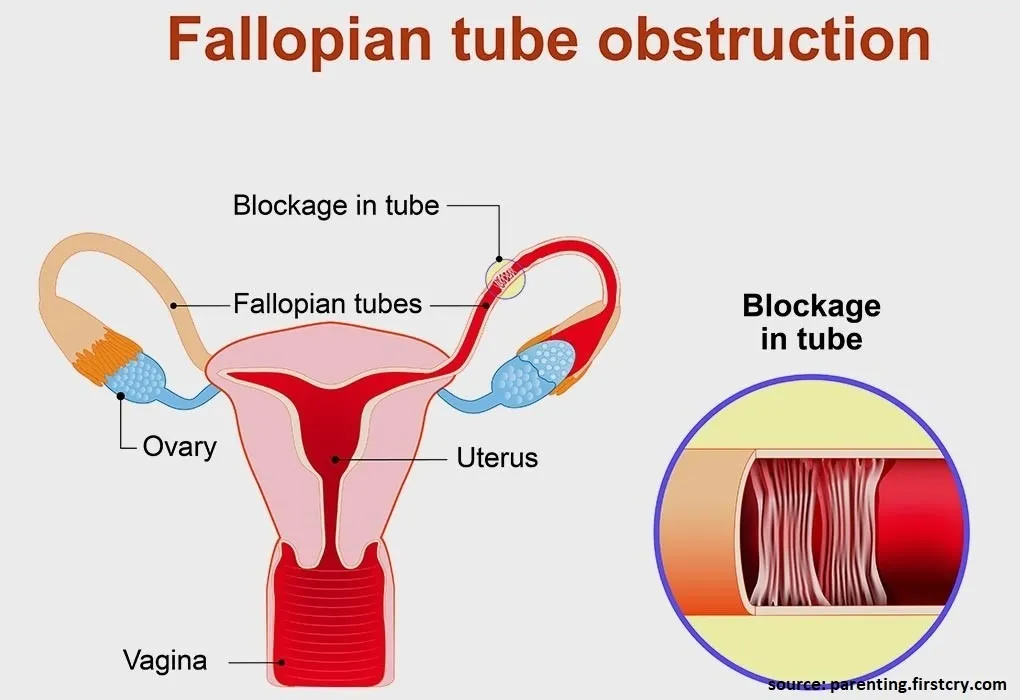Many women in Ahmedabad suffer from blocked fallopian tubes. Are you suffering from this condition as well? In this article, our IVF doctor in Ahmedabad is going to discuss blocked fallopian tubes and how to achieve a successful pregnancy with this condition.
Let us begin by understanding what a fallopian tube blockage is.
Fallopian tube blockage - What is it?
Fallopian tubes are female reproductive parts that connect the uterus and the ovaries. Every month in ovulation, this happens roughly within the middle of a menstrual cycle. The fallopian tubes transport an egg from an ovary to the uterus.
Conception occurs within your fallopian tube as well. If sperm fertilizes an egg, it travels through your tube to your uterus for implantation.
If a fallopian tube gets blocked, the sperm’s passage to reach the eggs, and the way back to your uterus for the egg, gets blocked.
Now that you know what a fallopian tube blockage is let us understand what its symptoms are.
Symptoms of blocked fallopian tubes
Blocked fallopian tubes do not usually bring symptoms. You may not know that you have blocked tubes till you try to get pregnant.
In a few cases, blocked fallopian tubes can bring mild, regular pain to one side of your abdomen. It often occurs in a blockage type called a hydrosalpinx. In hydrosalpinx, fluid fills and expands a blocked fallopian tube.
Conditions that lead to a blocked fallopian tube can have specific symptoms. For instance, endometriosis usually brings pain and pelvic pain and heavy periods. It raises your chances of having a blocked fallopian tube.
Now that you know the symptoms, let us discuss how their causes.
Causes of blocked fallopian tubes
Scar tissue or pelvic adhesions often blocks Fallopian tubes. Many factors can cause, as:
- Pelvic inflammatory disease: This disease can bring hydrosalpinx or scarring.
- Endometriosis: Endometrial tissue can develop within your fallopian tubes and bring a blockage. Endometrial tissue on the other organs’ can lead to adhesions that block your fallopian tubes.
- Certain sexually transmitted infections (STIs): Gonorrhea, Toxoplasma and Chlamydia can cause scarring and progress to pelvic inflammatory disease.
- Past ectopic pregnancy: It can scar fallopian tubes.
- Fibroids: Such growths can block the fallopian tube, especially where the tubes attach to the uterus.
- Past abdominal surgery: Past surgery, especially on the fallopian tubes, can lead to pelvic adhesions that block the tubes.
Effect on fertility
Blocked fallopian tubes are a general infertility cause. An egg and sperm meet within your fallopian tube for fertilization. So, a blocked fallopian tube stops them from coming in contact.
If both tubes are completely blocked, pregnancy without treatment is impossible. If your fallopian tubes are half blocked, you might become pregnant. However, your risk of an ectopic pregnancy increases.
It is difficult for a fertilized egg to travel through a blockage to your uterus. In such situations, your specialist may suggest in vitro fertilization (IVF).
If just one fallopian tube gets blocked, the blockage likely will not affect fertility as an egg can still move through your unaffected fallopian tube.
How do I know if my fallopian tubes are healthy?
In several cases, you will be aware of the condition of your fallopian tubes. It is because you will experience symptoms including discharge, pelvic pain, or a high temperature connected to one of the underlying conditions. In some cases, women can have damaged fallopian tubes without any symptoms.
We are lucky that recently specialists have made a range of quick and proper assessments for all fertility aspects. Such tests do not only cover egg reserve levels and your uterus’s health but also check whether the fallopian tubes are functioning as they should.
To see if there is a passage for an egg to move from the fallopian tube, the specialist can test the fluid passage or dye down the fallopian tube. This can be done using laparoscopy, which is regarded as the most reliable.
A similar test is x-ray hysterosalpingography (HSG), which is often done as an outpatient procedure in a radiology department. However, this test has largely been replaced using an ultrasound test called HyCoSy.
It is done in the fertility unit and includes visualizing fluid moving down the tubes. The moving fluid helps assure whether the tubes are open.
You may have to provide the specialist with your medical history. It can help them determine if any underlying medical condition is causing a blockage in your fallopian tubes.
So, how do you achieve a successful pregnancy if your fallopian tubes are blocked? The answer is an IVF treatment in Ahmedabad.
Can I have IVF if there’s a problem with my fallopian tubes?
In the IVF procedure, your egg does not have to pass through the fallopian tube. It is gathered directly from the ovary and fertilized within a lab. After that, the embryo is placed in your uterus.
The good news is that any issues with your fallopian tubes are bypassed, helping you achieve a successful pregnancy.
Blocked fallopian tubes can cause infertility; however, it is still possible to have a child. IVF can help you conceive and fulfil your dreams of becoming a mother. Visit your IVF centre in Ahmedabad to find out more about the treatment and how it can help with your condition.


